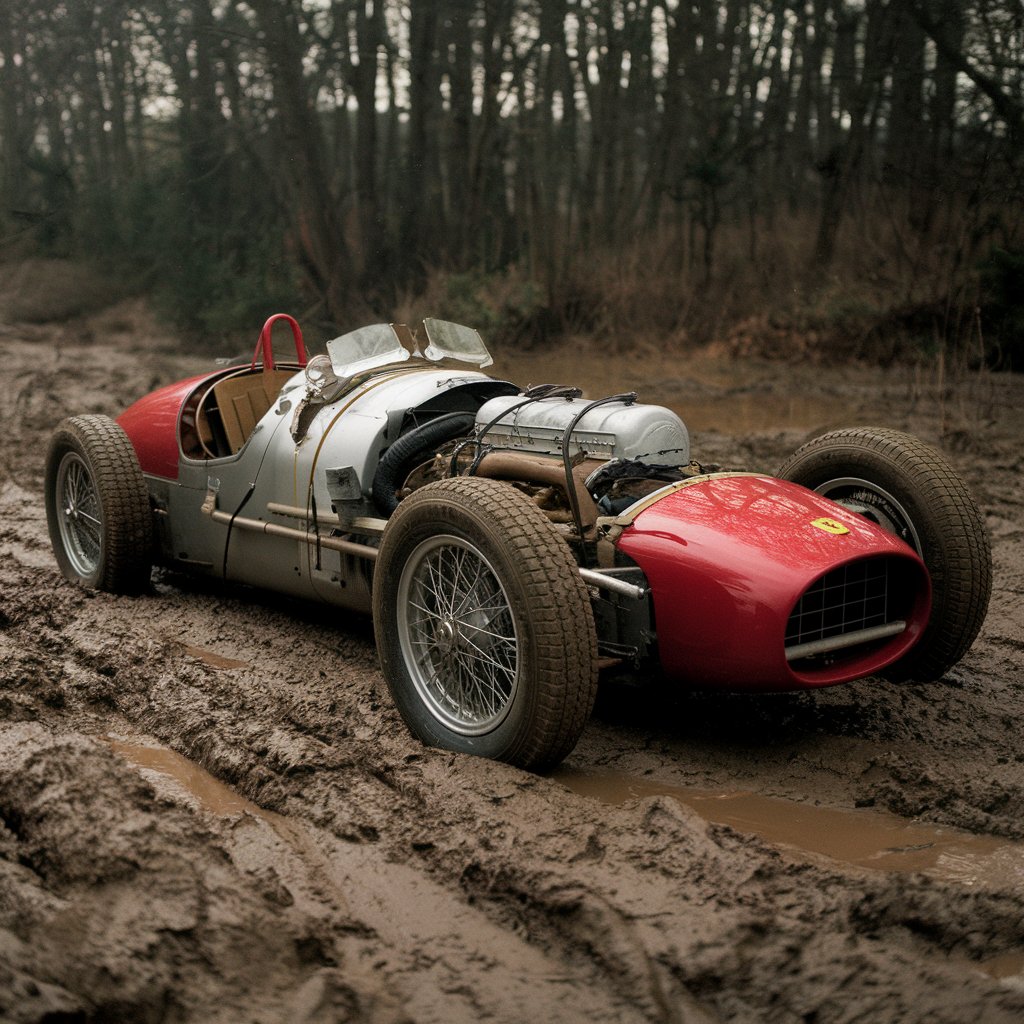During World War II, global disruptions extended to the world of motorsport, leading to a remarkable incident involving Ferrari racing cars. Stranded in New Jersey due to wartime transportation challenges and restrictions, these high-performance vehicles faced unexpected setbacks. This article explores the intriguing story of how these Ferraris came to be stuck in New Jersey, the impact on Ferrari and racing, and the broader implications for motorsport during and after the war. Discover how this unique episode reflects the resilience and adaptability of the racing world amidst global turmoil.
The Historical Context
The Impact of WWII on Motorsport
World War II had a profound impact on various aspects of life, including motorsport. During the war, many industries faced disruptions, and the world of racing was no exception. The conflict led to a pause in competitive racing and reshaped the landscape of the automotive industry.
Ferrari and Formula 1 in the Pre-War Era
Before the war, Ferrari was already a prominent name in motorsport. Founded by Enzo Ferrari in 1939, the Scuderia Ferrari team quickly made a name for itself in racing. The outbreak of WWII, however, brought these activities to a halt. The focus shifted from racing to wartime production and survival.
The Incident: F1 Ferraris Stuck in New Jersey
How the Ferraris Ended Up in New Jersey?
The story of the F1 Ferraris getting stuck in New Jersey during WWII is a fascinating chapter in automotive history. In the early 1940s, as the war intensified, many European teams faced logistical challenges. Some Ferrari cars, which were en route to the United States for exhibition or potential racing events, became stranded in New Jersey due to wartime restrictions and transportation issues.
- Transportation Challenges: The war severely disrupted global transportation networks. Ships and planes that were used to transport cars and equipment faced restrictions or were repurposed for military use.
- Wartime Restrictions: The U.S. government imposed restrictions on various imports and exports, affecting how goods, including high-performance cars, could be moved.
The Impact on Ferrari and F1 Racing
The delay of these Ferraris in New Jersey had several significant effects:
- Racing Disruption: The inability to participate in planned events impacted Ferrari’s racing schedule and their competitive edge.
- Strategic Shift: Ferrari had to adapt its strategies and operations during this period, focusing on domestic production and wartime needs rather than international racing.
The Legacy of the Stuck Ferraris
Post-War Recovery and Resumption
After WWII ended, the automotive industry faced a period of reconstruction and recovery. For Ferrari, the post-war era marked a return to racing and the resumption of competitive activities. The experience of having cars stranded in New Jersey contributed to the broader understanding of logistical challenges in international motorsport.
- Resuming Operations: Ferrari, like many other teams, had to rebuild and adapt its operations to fit the new post-war environment.
- Lessons Learned: The challenges faced during the war provided valuable lessons in logistics and international cooperation.
The Cultural and Historical Significance
The story of the F1 Ferraris stuck in New Jersey has become a notable anecdote in automotive history:
- Historical Anecdote: It serves as a reminder of how global events like WWII impacted various sectors, including motorsport.
- Cultural Impact: The incident highlights the resilience and adaptability of teams and individuals in the face of unprecedented challenges.
Insights and Analysis
The Broader Impact on Motorsport
The WWII-era challenges faced by Ferrari and other racing teams had a lasting impact on the sport:
- Innovation in Logistics: The experience led to innovations in logistics and transportation for racing teams, improving how they handle international events.
- Changes in Regulations: Post-war regulations and restrictions influenced how racing was conducted, shaping the future of the sport.
Personal Reflections and Stories
The stories of individuals involved in this era provide a human touch to the historical narrative:
- Personal Accounts: Accounts from those who witnessed or were involved in the transportation and storage of the Ferraris offer insights into the challenges faced.
- Resilience and Adaptation: The ability to overcome obstacles and adapt to changing conditions is a testament to the resilience of the Ferrari team and the broader motorsport community.
FAQs
1 – Why did the F1 Ferraris get stuck in New Jersey during WWII?
The Ferraris were stranded in New Jersey due to wartime transportation disruptions and restrictions imposed by the U.S. government.
2 – How did the wartime restrictions affect Ferrari’s racing activities?
The restrictions led to a halt in racing activities and a shift in focus from international competitions to domestic production and wartime needs.
3 – What impact did the incident have on Ferrari?
The incident impacted Ferrari’s racing schedule and competitive edge, leading to strategic adjustments and a focus on recovery post-war.
4 – How did WWII affect the global motorsport industry?
WWII disrupted transportation networks, leading to delays and restrictions in racing activities and influencing the development of logistics and regulations in motorsport.
5 – What were the long-term effects of the war on Ferrari’s operations?
Ferrari adapted its operations post-war, incorporating lessons learned into their logistics and international racing strategies.
Conclusion
The story of the Ferrari F1 cars stranded in New Jersey during WWII stands as a poignant reminder of the far-reaching impacts of global conflicts. This episode not only disrupted Ferrari’s racing ambitions but also highlighted the broader challenges faced by the motorsport industry during wartime. As we reflect on this unique chapter, it underscores the resilience of teams adapting to unforeseen obstacles and the enduring spirit of innovation in racing. Ultimately, the experience contributed to valuable lessons in logistics and international cooperation, shaping the future of motorsport.



